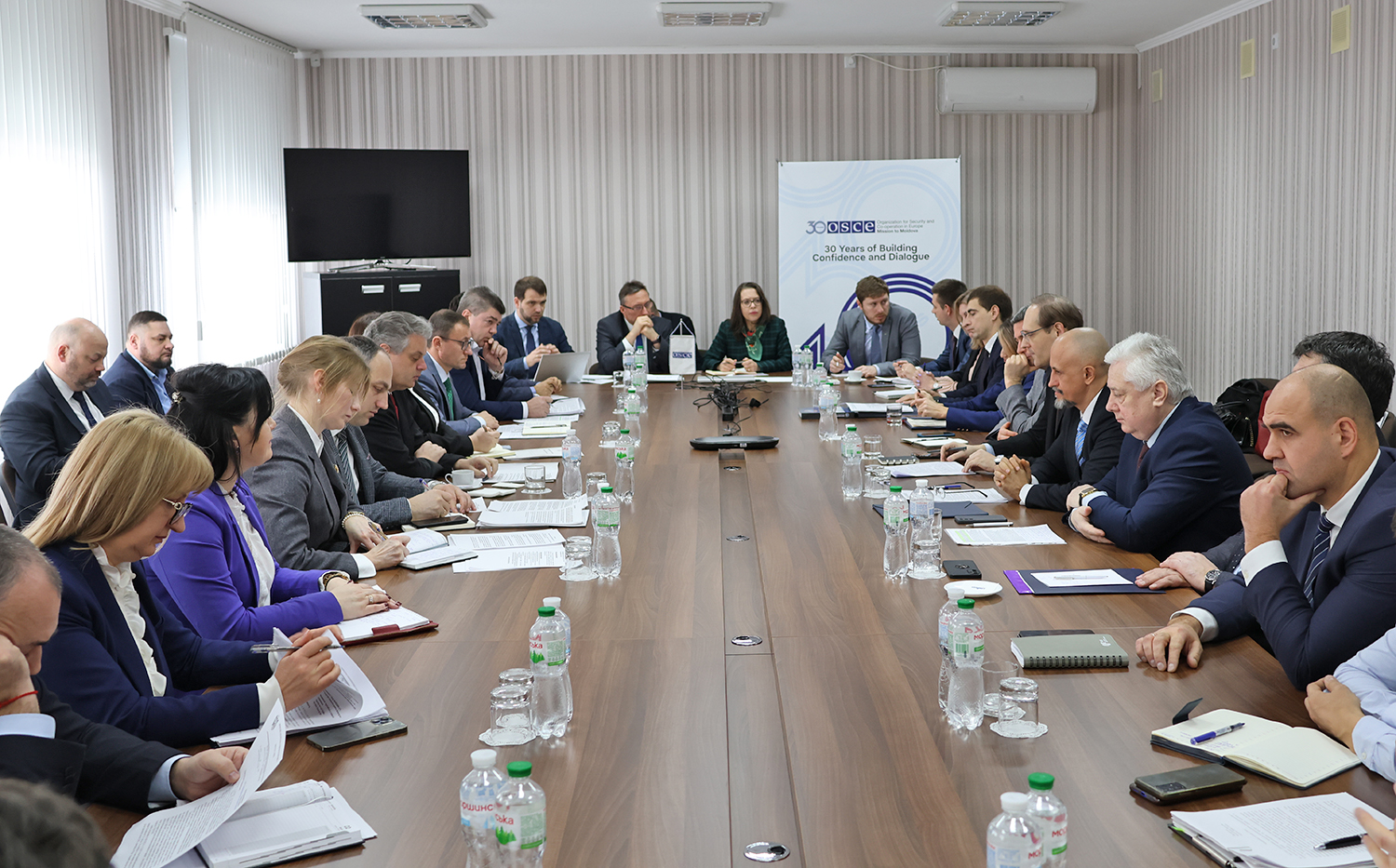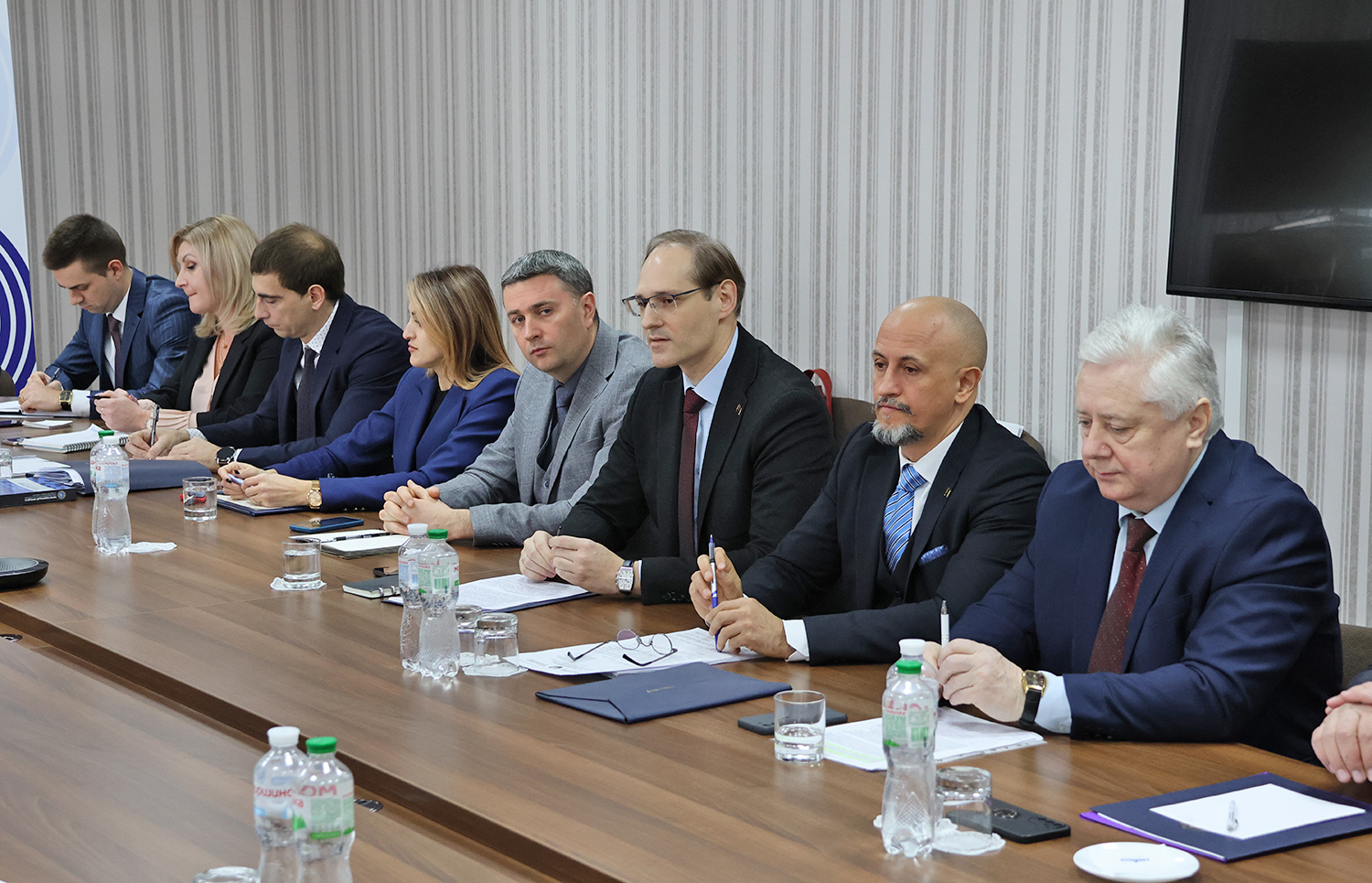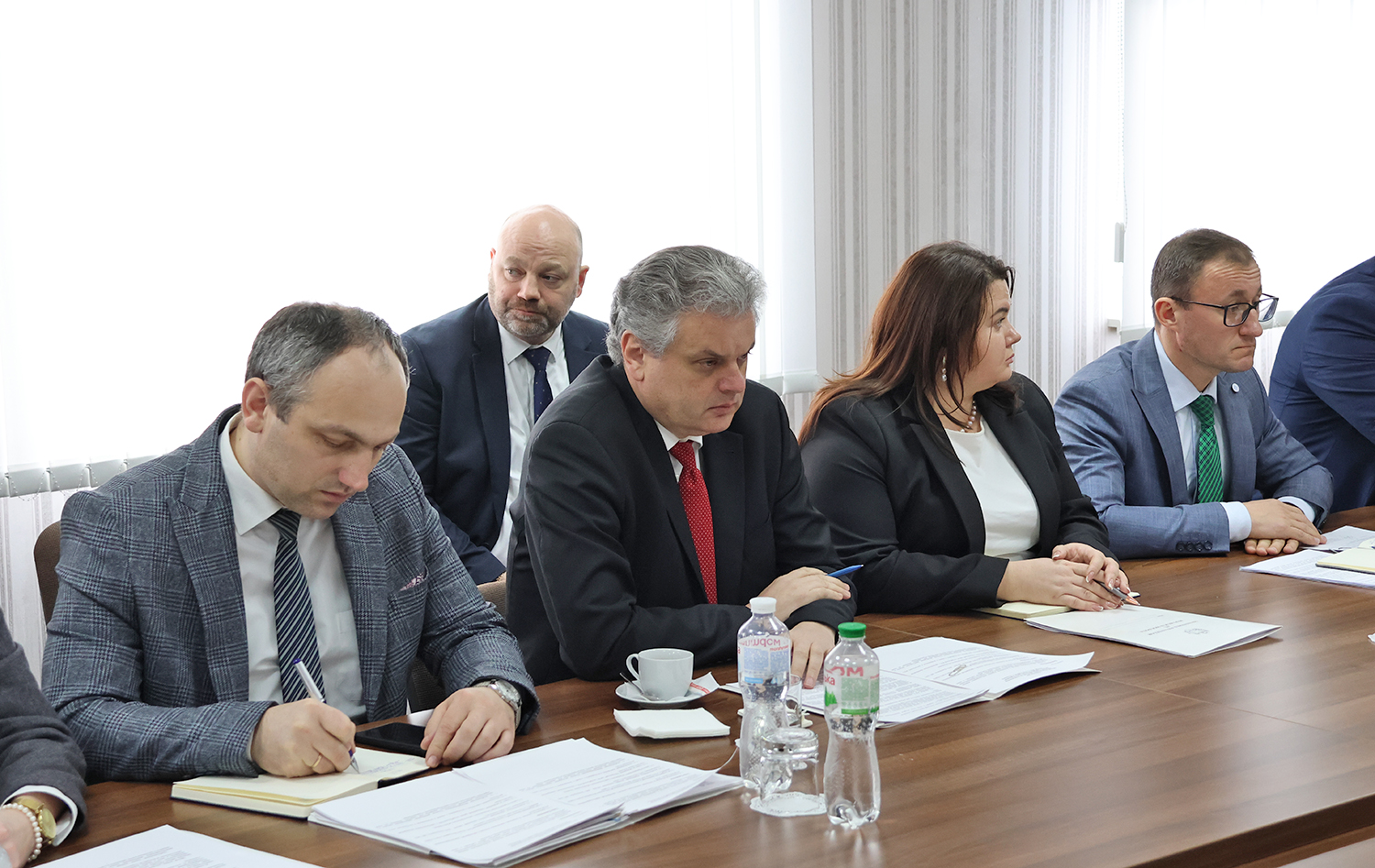Vitaly Ignatiev and Oleg Serebrian met at the Office of the OSCE Mission to Moldova in the presence of mediators and observers.
Opening the first meeting since 20 June last year, the PMR Foreign Minister criticized Moldova’s measures to claim customs duties from Pridnestrovian enterprises stressing the interest in maintaining conditions for peaceful dialogue. In that regard, approaches of the OSCE Head of Mission were supported who noted that fair communication reduces the risks of escalation.
On the instructions of the President, the Minister addressed the participants to the meeting with information from the Pridnestrovian special services about the subversive-terrorist groups with experience in military operations being trained on the territory of Moldova with the aim of staging provocations in Pridnestrovie. He expressed extreme concern about these reports and emphasized the Pridnestrovian side’s stance that peace and stability are crucial to ensuring the normal life of people both in the PMR and Moldova. The Minister also conveyed the Head of State’s appeals to the leadership of neighboring Moldova and other participants in the 5+2 format to prevent a destructive course of events.
The agenda of the meeting was mainly focused on economic problems directly related to discriminatory measures taken by Chisinau in recent years. In particular, much attention was given to the topic of charging customs duties on exports and imports of goods to Pridnestrovie in violation of the negotiation process agreements and established mechanisms of interaction. A strong emphasis was made on the fact that these measures had been introduced amidst the messages on their non-application starting from January 1 this year transmitted via various communication channels with Moldova.
The Pridnestrovian side presented its preliminary calculation of losses, which, according to the data from the PMR State Customs Committee, may amount to at least 16 million dollars annually if trade and economic activity remains at the level of 2023, and also cited a number of specific examples of duties already paid that lead to a disastrous situation at certain enterprises. The head of the expert group on economy, First Deputy Prime Minister and Minister for Economic Development, Sergey Obolonik, and UIAEP President Yuri Cheban were actively involved in the discussion. It was stressed that the bank blockade, especially the impossibility to service current accounts of Pridnestrovian enterprises in Moldovan banks, prevents the PMR importers from obtaining preferential certificates of origin CT-1 and EUR.1. As a result, they cannot even use the possibilities of duty-free import of goods. The unresolved banking problem can significantly multiply the negative effects of repressive measures in terms of customs duties implemented by the Republic of Moldova.
With the active participation of directors of some industrial enterprises, the problem of blocked export deliveries of their goods was tackled. It was once again stressed that these products are strictly for civilian purposes and that export applications of Pridnestrovian factories are considered for months in the Republic of Moldova, which leads to the disruption of contractual obligations. At the same time, most of the applications are rejected, which provokes losses for the PMR budget, dissolution of long-standing labor collectives and industries.
Separately, the interlocutors discussed the situation with the enterprises KVINT and Buket Moldavii, which have not been able to export their products to foreign markets since 1 January. The Pridnestrovian side reiterated its concrete proposals on how to settle existing problems voiced as part of expert (working) groups. In turn, representatives of the Republic of Moldova confirmed their principled commitment to facilitate the decisions that would allow the enterprises to proceed with their export activities.
The Minister of Health joined the discussion to address in detail the problem of importing medical radiological equipment (to serve the needs of the tuberculosis dispensary of the Republican Clinical Hospital and the Republican Dental Polyclinic), as well as vital medicines to Pridnestrovie. Note that the import of an Italian digital X -ray machine worth 3 million rubles, purchased with budgetary funds, has been blocked by Moldova for several months. The sides agreed to hold a meeting of health specialists in the nearest future in order to arrive at specific solutions.
At the initiative of the Pridnestrovian side, the attempts to charge environmental pollution fees from certain industrial enterprises of the PMR leading to double taxation and additional financial burden were also raised.
The PMR representatives once again called for the resumption of the full activity of the Vehicle Registration Offices in Tiraspol and Rybnitsa, noting that there were no obstacles to their operation on the part of the PMR. Special emphasis was made on the inadmissibility of Chisinau’s plans to apply restrictions on the movement of Pridnestrovie-registered vehicles across the territory of the Republic of Moldova, based on the provisions of Article 4 of the 2018 Protocol Decision.
In addition, detailed discussion on the issue of the return to permanent residence in the PMR of citizen A.I. Navarici, which has been repeatedly mentioned in official correspondence, took place.
In addition, a detailed discussion was held on returning citizen A.I. Navarici to his permanent place of residence in the PMR, which repeatedly was the subject of official correspondence.
At the end of the meeting, the Pridnestrovian side outlined its vision of holding the negotiation process activities on the territory of the Republic of Moldova. Reference was made to Chisinau’s withdrawal from the gentleman’s agreement on the movement of officials, which was concluded under the guarantees of the Head of the OSCE Mission, and the resulting lack of security guarantees for the Pridnestrovian negotiating teams on the territory of Moldova. Vitaly Ignatiev signaled his willingness to resume the fulfillment of this agreement on a reciprocal basis, but until then he proposed to the Moldovan side to meet at the OSCE Mission offices in Tiraspol and Bendery, or at other agreed venues on the Pridnestrovian territory. In this context, he specifically praised the OSCE Office for Democratic Institutions and Human Rights for its sober assessment of the so-called “law on separatism”.
Given the purely humanitarian nature of the problem, the Minister again invited his vis-a-vis to sign the Protocol Decision on the mechanism for the return of children found unaccompanied by legal representatives to their permanent place of residence, the draft of which was initialled in 2018.










